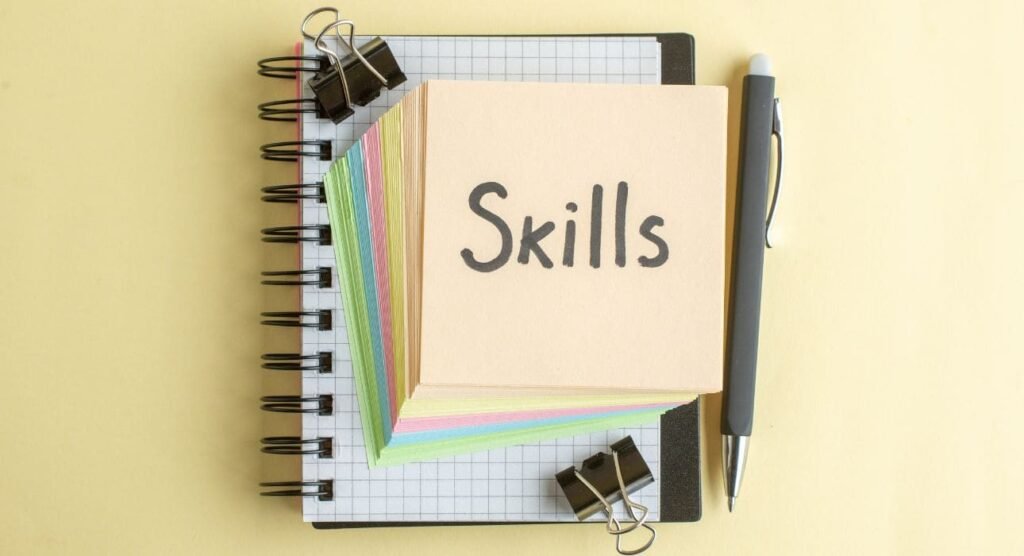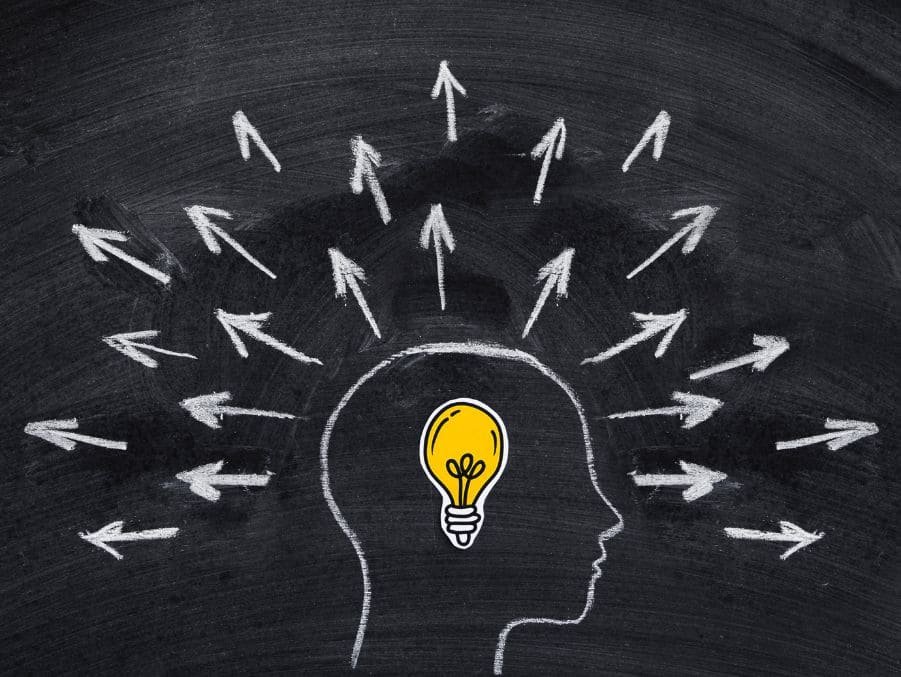From the second we open our eyes to the moment we close our eyes again for the day. From that five-minute snooze break in the morning to deciding on a topic for an essay/project. We are making several small and big decisions without even realising it at times. What do you want to eat for breakfast, or should you have another cup of coffee and risk spending the day in the bathroom? Decisions and humans are an inseparable combo. Our decision-making abilities make us who we are today.

We spend almost every waking hour trying to choose what our next move needs to be, even if that move is just taking a quick nap. “Should I risk taking a nap right now or should I bear through it till I finish revising for my exam?” This is a dilemma every student has faced at least once or twice in their lives. This decision could determine if you fail or pass (in case you completely doze off). It is a crucial decision when you are exhausted and in a crunch for time. A nap can refresh you, but what if you do not wake from that nap? Such decisions are a part of our day-to-day life.
The decision we take today would determine how easy or difficult tomorrow might be. Some people can analyze and make a great decision within seconds, while others struggle to decide whether they should cook today or order takeout. Decisions are something a person has to make, whether good or bad. However, bad decisions are also a part of our lives. Letting a few poor decisions scare you away from carving your own life is harmful.
We should all strive to take our lives into our own hands and carve out our own choices, not letting anybody else take them away from us. Throughout our history, we have seen several revolutions against aristocrats, colonials, or dictatorships. While every revolution had its own set of reasons, one thing was common in all. The desire to take back control over their decisions, to have power over their choices to carve their path, even if it led to a thorny trap.
Why Is It Important To Become A Strong Decision Maker:
For some people, making their own decisions is harder than putting their hands in a jar full of poisonous snakes. Deciding on breakfast can be hard, let alone their career, that could determine if they ever achieve success or not. On one end of the spectrum lie people who fear making the smallest decisions about their life, while on the other end lie confident, always ready to make any and every kind of choice. There is a never-ending list of benefits when it comes to being a strong decision-maker.
The most obvious one is making good choices and walking on a path that truly satisfies you. Decision-making is something you cannot escape, as even an entry-level employee in an organization. If it is something that you cannot escape, isn’t it better to embrace it? Decisions also play an important role in maintaining your relationships with your loved ones. When you actively decide to prioritize the people you love, you can create a healthy relationship that makes people feel needed around you.
A strong decision-maker is also able to compare and weigh all choices to determine which one is the most suitable for them. Decision-making affects every second of your life, as it determines your priorities and what matters to you. A person who cowers away from making their own decision will never be able to feel the sensation of looking back and feeling that sense of satisfaction wash over them as they bask in the light of the decisions they made.
Understanding The Decision-Making Process:
To understand the traits of a strong decision-maker, we need to start by understanding how a good decision is made:
- Explain The Problem: Before even getting to the process of decision-making, first we need to understand the issue that we are supposed to decide on. The first step is to clarify, analyze, and lay down the definition of the challenge that we need to choose. Understand the implications and the importance of the problem before planning any decision (Gavin, 2020).
- Gather Information: Now that you know what you are dealing with, try to connect with the problem on a deeper level. Gather information about how others in the past solved this problem and how effective was it. Humans learn a lot from modelling the behaviour of others. We can learn from the achievements and mistakes of others. Analyze how others dealt with this problem to get an idea about what to do and what not to do.
- Keep Your Options Open: Don’t dive into the first option that seems effective. While collecting data, you must have seen a lot of options that worked for others. Keep a set of choices that you feel can work as well to ensure you take the right step.
- Weigh Your Options: Now that you have a variety of choices to choose from, compare every alternative and weigh their advantages and disadvantages to get a better understanding of the consequences.
- Make The Choice: After mapping the pros and cons of every choice you have, it is time to get into action. Decide on the option that suits your needs best and create a plan to implement it. Follow the plan closely but flexibly to secure the best possible outcome. Keep your eyes open while you carry out the plan and don’t be afraid to change the course of action if you believe that it is not working well.
- Reflect: Once everything has been carried out, and the decision has been implemented, reflect on the outcome. Determine how it benefited you and where it was lacking. Consider these outcomes before making your next impactful decisions. This ensures that you do not repeat the same mistakes and make an even better decision next time.
Traits That Suggest That You Are a Strong Decision Maker:
Strong decision-making is a skill that everyone desires to have. Recruiters also consider it as one of the top abilities an employee can have. If you are wondering where you lie on the decision-making spectrum, here are ten traits according to psychology that strong decision-makers have:
1. Great Attentional/Perceptual Skills:
Any good decision is made after considering any and every information that is available in the environment. Strong decision-makers have highly developed perceptual and attentional skills with a tendency to pick up on even minor details most people often overlook.

A good decision requires choices, and evaluation of data and resources one has. This data needs to be completely up-to-date, valid and relevant. Novice decision-makers often miss crucial details. They may overlook information that seems insignificant but can be a game changer when making the final decision.
However, a comparison study revealed that if novices are given the same information as strong decision-makers, they are usually able to make almost as well-thought-out decisions as an expert. However, due to highly developed perceptual skills, a strong decision-maker is also able to make out unique patterns from their data that novices aren’t able to pick up (Krogstad et al., 1984).
2. Ability To Gather Relevant Information:
A lot of data is constantly available to us in our environment, including the sound of the fan or this article that you are reading right now. However, is everything that is in your environment right now relevant to you? Probably not. If you are at your desk studying the bed beside you, should not concern you during your study session. Similarly, when making any good decision, an individual should only focus on relevant information that can impact the quality of that decision.
A strong decision-maker can pick up and sort out between useful and not useful information. They are quickly able to assess the information presented to them and only note down relevant information while putting aside irrelevant information for other decisions. A study conducted on nurses revealed that when novice nurses were trained to sort between useful and not-useful information, they were able to make better and more confident decisions as compared to non-trained ones (Shanteau, 1988).
3. Simplifying Complex Information:
Sometimes the vital information required to make an impactful decision can be too complex and hard to understand. However, people with strong decision-making capabilities are easily able to make sense of this chaos. We often consider skilled chess players as expert decision-makers, as a lot of thought and care is put into every move they make. Strong decision-makers have superior pattern recognition abilities that help them make great decisions (De Groot, 1965).

They have higher chances of getting to the crux of the problem even when the information initially presented to them is extremely complex and hard to understand. Such people do not only simply information for themselves but also can explain it in a simplified and digestible manner for others. They respond well to stressful situations and can quickly break them down before stress can break them.
4. Effective Communication Skills:
Effective communication skills are valuable in every situation, and decision-making is not an exception to it. A strong decision-maker does not ignore constructive information from others and is a team player. Not only that an expert decision-maker is also able to convince relevant individuals about their decision. Any strong decision-maker can persuade others about the positive impacts and benefits of their decision and ideas (Dino and Shanteau, 1984).
A strong communicator is also almost naturally chosen the become the leader of a group responsible for making any decision. This bias is understandable, as excellent communicators can collect and convey information in a way that does not leave space for doubts. Strong decision-makers are often great communicators and take pride in never letting their teammates feel overlooked when working on an important decision.
Read More: Managing Dismissive Behaviour: Tips for Better Communication
5. Ability To Handle Adversities:
Many people shrink away from their decision-making responsibilities as they fear its consequences. People fear making bad choices. It is natural to have some sort of apprehension about the decision you decide to make. However, people with strong decision-making abilities can make confident decisions even if they lead to possible negative consequences.
They believe in their capability to bounce back and handle adversities if a problem arises due to the choice they decide to make. They believe that there are no “bad mistakes” and that good things can always come out of mistakes that people might consider life-ruining and impossible to recover from. Imagine a scenario where two musicians are playing are playing a beautiful piece on the piano.

However, despite their initial decision to play this piece, they make a mistake and play a wrong note. A disastrous situation, right? Any person would panic in the situation. However, while one pianist panicked and stopped in between, the other stayed confident in his decision and ad-libbed another piece into it. Who do you think has more chances to win? The one who stayed calm, right? A strong decision-maker is resilient and does not fear making the “wrong decision”.
6. Ability To Be Selective:
A good decision is not only about the solution that was worked out but also about the problem that was worked on. Strong decision-makers know that to be effective, they need to be selective. A lot of decision-making is actually about the problem they choose to handle. If you are trying to decide about something that is not under your control, then obviously any decision you take would lead to failure.
Let’s say you’ve decided you want to choose a career path for your toddler. No matter what decision you take if your child does not have the aptitude or interest in it, he will not walk on the path you decided. Even if he ends up walking on the path you created. It would only lead him to a place of struggle and unhappiness, regardless of his efforts. A strong decision-maker selectively chooses what they are confident in, discarding any doubts. They are aware of what they can control or not choosing to work only on things that are in their hands.
7. Confidence In Their Abilities:
A decision is not only a concept or an idea. Instead, it is something that you have to stick to, act upon, and assess. A strong decision-maker always
displays confidence in their choices, never showing a hint of doubt. A person who is not confident about their decision can never successfully carry it out. If you don’t have faith in your choice, who else will? Before anyone else, we need to persuade ourselves about the decision.
Imagine conveying to your team that this decision might be successful and you are not sure about it. No one will want to back up that decision as they were not persuaded by it well because they were not persuaded about it either. Any great invention or idea only comes out to the public’s eyes because the individual believes in themselves and their invention. Some people might mistake it for arrogance, but truly believing in your decision is the first step towards making it work out to your benefit (Shanteau and Phelps, 1977).
8. Extensive and Up-to-date Knowledge:
Any good decision requires extensive research with evidence to back it up. Strong decision-makers are always updated about the relevant content needed to make their decision. They know a lot and take pride in knowing a lot about their field. Imagine a scenario where you are going to take a campus tour, perhaps to join their psychology department.
However, when you encounter the head of the department, it comes to your knowledge that they are not actually from the field of psychology. Will you feel comfortable with them deciding the courses and syllabus you will study there? Chances are that the campus tour would be your last visit there. A strong decision-maker is always an expert in the field of decision they are working on making. If they are not that up-to-date with the field, then they will make themselves a content expert in that field before moving on.
9. Creative Soul:
A good and well-thought-out decision requires coming up with a variety of alternative options to ensure they select and carry out the best decision. A strong decision-maker is always creative, with a capacity to develop novel and new decision strategies. They are easily able to form new strategies and ideas to tackle the problem with a fresh and novel perspective (Dino et al. 1984). When presented with any problem, they can work on strategies to research several existing ideas to create an original idea that fits their needs. They have an unlimited creative capacity and are always ready to work with their creative side.
Read More: 10 Subtle Signs of Highly Creative People, According to Psychology
10. Excellent Articulation Skills:
An impactful decision can only be considered impactful once it has been implemented correctly. Any good decision needs to be conveyed to their
team properly to avoid any misunderstanding. A strong decision-maker is good at verbalizing their ideas and thoughts to ensure that their decision is being implemented correctly, without any setbacks. They use both verbal and non-verbal cues while explaining their decision to ensure that everybody is on board with the same idea. They effectively verbalize even abstract concepts, leaving no scope for miscommunication being a future obstacle.
Decisions have always played a huge role in our lives. We started making decisions even before our brains were fully developed and capable of thinking rationally. As hard as it can be, decisions are a responsibility we have to bear till the end of our lives. They can build us up or completely shatter our lives. Everyone makes some poor choices from time to time. However, the way we react to the aftermath of the decision we make to fix the issue determines the final consequences. A strong decision-maker can confidently take control over their own life feeling pride and satisfaction in their life’s work. Don’t let your fear or a few bad decisions stop you from making future great decisions.
FAQs
1. What is a strong Decision-maker?
A strong decision-maker has the consistent ability to choose an option from many that ultimately contribute towards effectively solving a problem. They can make rational and open-minded judgements with confidence in their choice to choose the best possible option out there.
2. Which skills contribute to Decision-making?
Skills such as leadership, effective problem-solving, great intuition and logical reasoning contribute towards decision-making. Other skills that affect the quality of decisions made include teamwork, emotional intelligence, creativity and time management.
3. What is the most important strength of a strong decision-maker?
Logical Reasoning is considered one of the most important strengths of an expert decision-maker. They can reason well and weigh options accurately. They can collect data effectively and weigh their options without much effort ensuring that they make the best possible decision.
4. What are some Characteristics of an effective decision?
An effective decision is unbiased and helps overcome the present issues. It helps to achieve a goal while being easy to implement and carry out. Any good decision is always a team effort and involves the opinions of everyone affected. To ensure its success the decision should be based on sound reasoning and should be transparent.
References +
- De Groot, A. D., & De Groot, A. D. (1978). Thought and choice in chess (Vol. 4). Walter de Gruyter.
- Dino, G. A., & Shanteau, J. (1984). What skills do managers consider important for effective decision making. In Psychonomic Society meeting, San Antonio.
- Dino, G. A., Shanteau, J., Binkley, M., & Spenser, A. (1984). The detrimental effects of environmental stress on creativity. Tech. Rep. 84–2). Manhattan: Kansas State Univer-sity, Department of Psychology.
- Gavin, M. (2020, February 4). 8 steps in the Decision-Making process. Harvard Business School Online. https://online.hbs.edu/blog/post/decision-making-process
- Krogstad, J. L., Ettenson, R. T., & Shanteau, J. (1984). Context and Experience in Auditors’ Materiality Judgments. Auditing: A Journal of Practice & Theory, 4(1).
- Shanteau, J., & Phelps, R. H. (1977). Judgment and swine: Approaches and issues in applied judgment analysis. In Human judgment and decision processes in applied settings (pp. 255-272). Academic Press.
- Shanteau, J. (1988). Psychological characteristics and strategies of expert decision makers. Acta psychologica, 68(1-3), 203-215.













Leave feedback about this